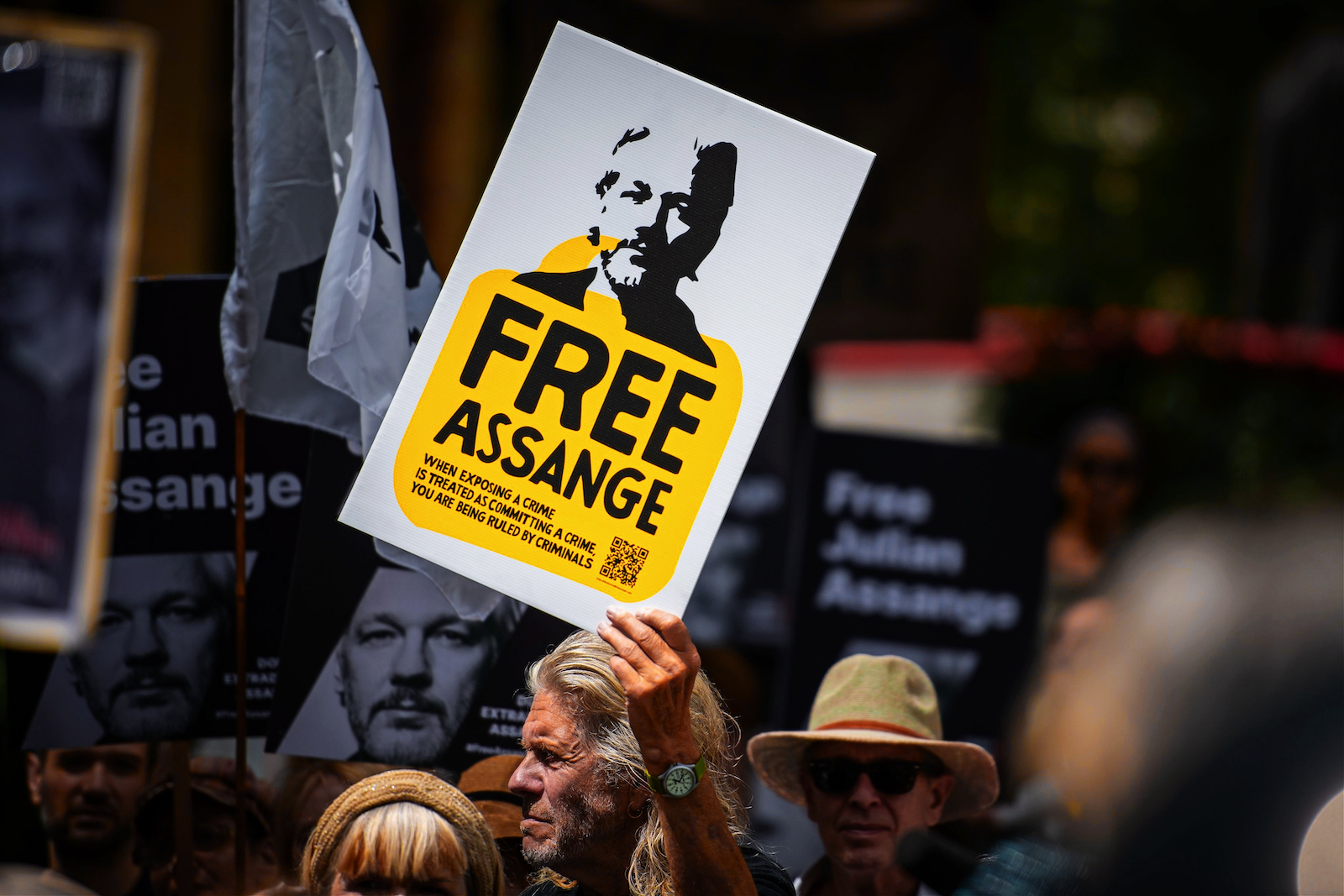
Purgatorial Torments: Assange and the UK High Court
British justice often exudes a peculiar malodorousness, especially when dealing with cases that have a political tinge. This is nowhere more evident than in the ordeal of Julian Assange, which continues to unfurl like a macabre charade, providing ample fodder for public dissection and legal debate.
Those supporting the WikiLeaks publisher, who faces extradition to the United States even as he remains scandalously confined and refused bail in Belmarsh Prison, had hoped for a clear decision from the UK High Court on March 26. Either they would reject leave to appeal the totality of his case, thereby setting the wheels of extradition into motion, or permit a full review, which would provide some relief. Instead, they got a recipe for purgatorial prolongation, a tormenting midway that grants the U.S. government a possibility to make amends in seeking their quarry.
A sinking sense of repetition was evident. In December 2021, the High Court overturned the decision of District Court Justice Vanessa Baraitser to bar extradition on the weight of certain assurances provided by the U.S. government. Her judgment had been brutal to Assange in all respects but one: that extradition would imperil his life in the U.S. penal system, largely due to his demonstrated suicidal ideation and inadequate facilities to cope with that risk.
With an air of either guileless trust or sharp legalistic skepticism, the High Court judges took the U.S. Department of Justice at its word that Assange would evade the draconian environs of ADX Florence and the silencing veil of Special Administrative Measures. Assurances were also made that he would be afforded suitable medical attention to lessen his suicide risk and potentially complete any imposed sentence in his homeland, Australia. The transitory nature of such promises seemed to elude the judicial cognizance. The verdict rendered on March 26 duly aligns with this established tradition.
The framework of Assange’s defense encompassed nine contentions divided into two segments, elements of which should resonate with even the broadly informed observer. The first segment, with seven contentions, challenged the propriety of transferring the case to the Home Secretary, citing violations of the UK-U.S. Extradition Treaty’s clause against political offenses, the politicized nature of the prosecution, and various conflicts with the European Convention on Human Rights, spanning from free expression to the guarantee of a fair trial, and the prohibition of inhumane treatment.
In this gaggle of imposing, even damning arguments, the High Court was only moved by three arguments, leaving much of Baraitser’s reasons untouched. Assange’s legal team had established an arguable case that sending the case to the Home Secretary was wrong as he might be prejudiced at trial by reason of his nationality. Following from that “but only as a consequence of that,” extradition would be incompatible with free speech protections under Article 10 of the ECHR. An arguable case against the Home Secretary’s decision could also be made as it was barred by inadequate specialty/death penalty protection.
What ensued was a rigorous and unsparing condensation of a vigorous challenge against what is perceived by many as a prosecution with political motivations disguised in the trappings of legal formalities. On the contention of whether Assange’s legal woes were a result of his political beliefs, the Court was content to endorse Baraitser’s negative assessment, neglecting the blatantly political nature of disclosing state secrets and military malfeasances.
The Court also neglected to critique Baraitser’s interpretation of the Espionage Act of 1917, a relic of wartime censorship that has become an overzealous suppressor of contemporary whistleblowers. The Court failed to recognize that the Act intends to sidestep fundamental constitutional protections, an argument articulated from its inception by the forthright Wisconsin Republican Senator Robert M. La Follette.
On the issue of whether Assange would be denied due process in that he could not foresee being prosecuted for publishing classified documents in 2010, the view that U.S. courts are “alive to the issues of vagueness and overbreadth in relation” to the Act misses the point. It hardly assures Assange that he would not be subject “to a real risk of a flagrant denial” of rights protected by Article 7 of the ECHR, let alone the equivalent Fifth Amendment of the U.S. Constitution.
The palpable evidence pointing to an unfair trial—predicated on biased official statements, compromised evidence, a prejudiced jury, and coercive plea bargaining—should have been self-evident. Yet, the Court, siding with Baraitser, determined that such concerns bore “no arguable merit,” leading to the conclusion that extradition would not amount to a blatant denial of fair trial rights.
Moreover, the High Court’s rejection of “fresh evidence,” like the alarming disclosures in a Yahoo! News article about potential CIA misconduct and a statement from U.S. attorney Joshua Dratel regarding the designation of WikiLeaks as a “non-state hostile intelligence service,” was a disquieting omission. This information, including testimony about UC Global’s espionage activities at the Ecuadorian embassy, should have substantiated the threat to Assange’s life and the potential for inhumane treatment.
In a bewildering exercise of judicial creativity, the High Court surmised that Baraitser might have disregarded such evidence anyway, arguing paradoxically that Assange’s safety might be secured upon his surrender to the very entities alleged to have plotted his demise.
In a display of judicial largesse, the High Court reiterated the position held by their colleagues in the 2021 decision, demanding assurances from the U.S. to address concerns about Assange’s mistreatment. Yet, the expectation that the prosecutors will uphold their pledges or that a U.S. court will apply the First Amendment protections to a non-citizen is arguably naive.
As deadlines loom for the U.S. to provide additional assurances and for responses from Assange’s legal cadre and the Home Secretary, another window for appeal presents itself on May 20. The bizarre and grotesque layers of the Assange narrative continue to accrue, ensnaring justice in a disorienting maze.
